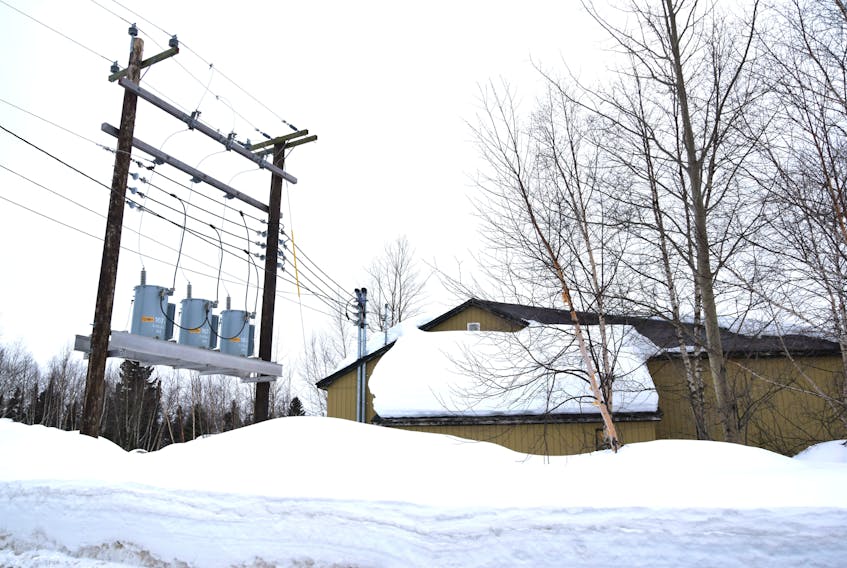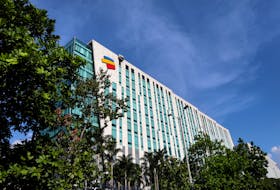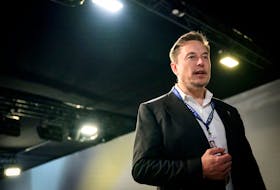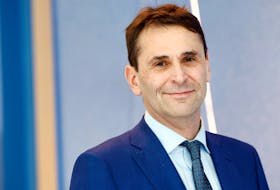An owner of a data centre company in Happy Valley-Goose Bay is afraid his company is getting tarred with the same brush as some of the other projects in Labrador and Eastern Canada.
James Goodwin, owner of Great North Data, says his company is the largest data centre company in Labrador and employs people locally. His comments are in reaction to comments from Happy Valley-Goose Bay Mayor Wally Andersen, who said data centres are taking power and not providing for the local economy.
“I think it’s just a big misunderstanding,” he told the Labradorian. “There are data centres in Labrador that don’t employ anybody and are sucking up several megawatts. I’m not going to disagree with him there but those aren’t my data centres and they’re mainly in Lab City. I think there’s one small one that I’m aware of in Goose Bay that’s drawing half a megawatt, maybe more, but that’s not my project. Most of the Goose Bay expansion that’s going on this year, all of the Goose Bay growth in the data centre industry is my company and we certainly do employ people; our business model is entirely different.”
He said most of his clients do farm cryptocurrency but are also involved in such things as artificial intelligence and augmented reality. The difference between his company and some others, Goodwin said, is other people are all mining with their own hardware and they set up because the power is cheap.
“They might check in on it once every few months and when the equipment reached the end of its life they pick it up, ship it to China to repair or (for) replacement and they stick in the next load of gear,” he said. “Our business model is very different. As part of our cost we provide 24/7 support so people’s miners are kept up, we repair them on site, there’s a lot of labour we do locally.”
He said they started as a company mining cryptocurrency, and still do a lot of that, but it turns out if a company is really good at hosting and maintaining processors going 24/7 it doesn’t matter what kind of processor it is, so they have expanded into AI and other areas.
In terms of creating local jobs, Goodwin said they just hired their fifth employee in Happy Valley-Goose Bay, and usually fly in one or two from other parts of Atlantic Canada.
“We try to recruit as much talent as we can locally. I just spoke at the high school and got some resumes, which was great,” he said. “Right now we have two to 2.5 people per megawatt in Goose Bay and we figure that trend is going to continue, especially as we get more into more of this AI. It takes a lot more human intervention to run and maintain.”
He said he did understand where Andersen was coming from and does feel they have to be discerning when choosing which data centres to allow to set up in the area.
“In terms of what to do with the power, I think you have to be careful who you give it to,” he said. “That’s why I feel I have to sell what we’re doing better, we are employing local people, and we’re not the guys who don’t need to plow their place all winter. I have people in there the whole time and we have a lot going on. We’ll be north of 10 employees by next year hopefully and we do have to move our headquarters soon and Goose Bay is definitely a possibility.”
He said what makes the area so attractive to data centres is the cheap power and cold climate. In terms of how much power is available, Goodwin said he could see a lot more power being available in the area in the future.
He cited 20 megawatts from Schefferville that is sold to the Quebec grid and a 90 megawatt line that was supposed to go through a line to Lab West, not to mention Muskrat Falls.
“Muskrat Falls is going to have a massive surplus, if you look at the PUB filings in Nova Scotia and New Brunswick, they’re flush because of the wind power. The island has some demand but there’s several hundred megawatts potentially left over in the Goose Bay area.”
He said he understands for people to be on board with data centres they have to make a contribution to the area.
“We realized that for people to be happy with what we do we have to give something back to the community. It would be easier to ship the parts back to China and get them fixed but doing it locally means people are employed and that’s a win for the community.”









